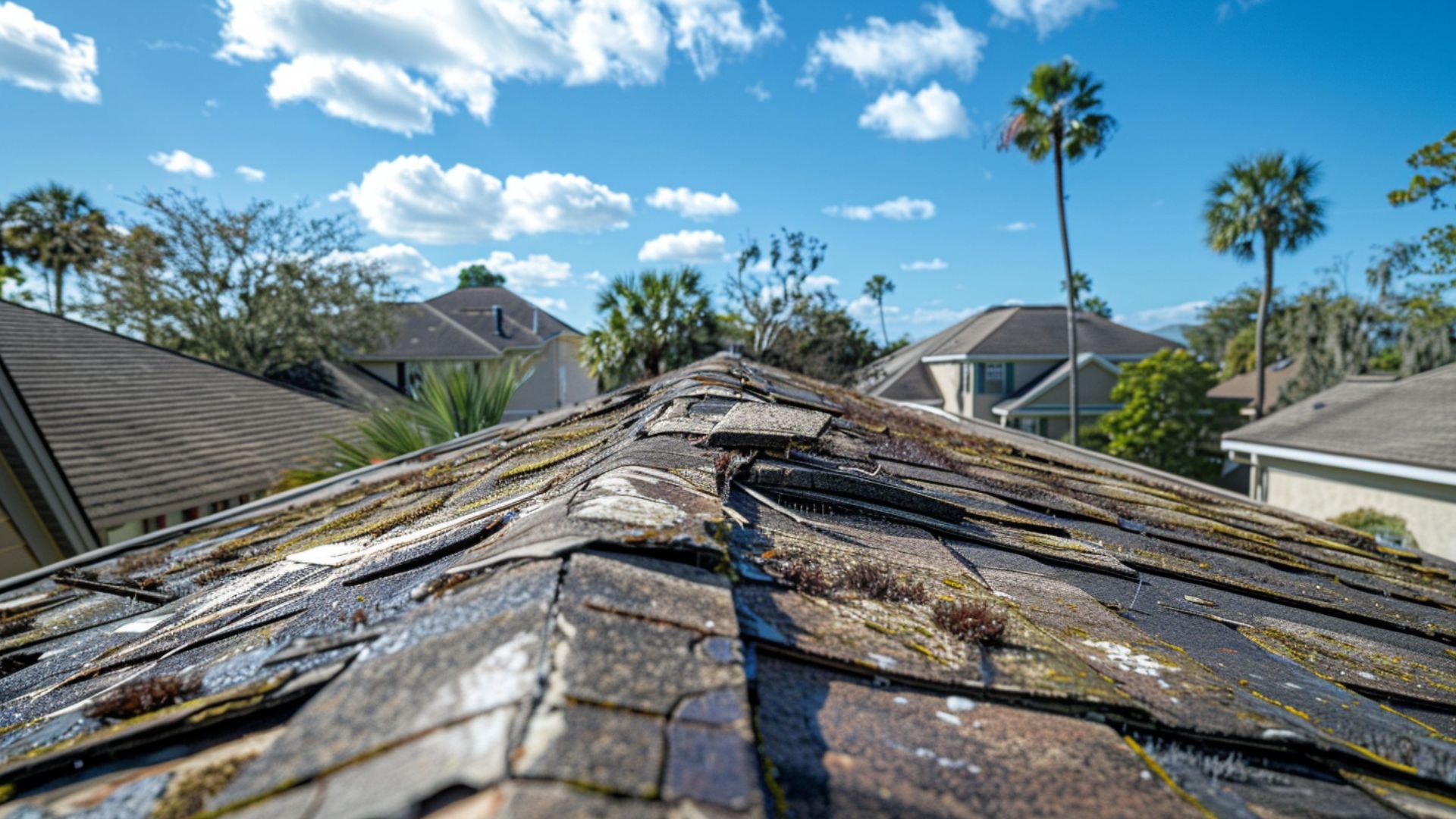
Hurricane Prep Guide for Jacksonville: Before, During, and After the Storm
Are you ready to face the hurricane that’s already upon us? As storms grow more unpredictable and intense, knowing how to protect your home and family is crucial. Hurricanes can cause widespread devastation, leaving behind not only physical damage but emotional turmoil as well. This comprehensive guide offers essential insights on preparing for the storm before it strikes, navigating challenges during the hurricane, and effectively managing the aftermath. We’ll cover critical steps to take regarding your insurance policy, tips for gathering emergency supplies, and strategies for assessing damage and recovery.
Whether you’re a seasoned hurricane veteran or facing your first storm, understanding these steps can make a significant difference in ensuring safety and resilience for you and your loved ones.
Ready to secure your home with a trusted roofer?
Call Steel Rudder Roofing now for an immediate consultation!
Key Takeaways
Preparation is Key: Stock up on emergency supplies, secure your property, and ensure that vulnerable individuals are well-equipped with medical essentials.
Stay Safe During the Storm: Shelter in a secure spot away from windows, and stay informed using a battery-powered radio or TV.
Post-Storm Caution: Avoid hazards like downed power lines, flooding, and wildlife, and use emergency supplies, especially bottled water.
Damage Assessment: Document all damages with photos and videos for insurance claims and begin clean-up once it’s safe.
Insurance Assistance: Contact your homeowner’s insurance immediately and understand your options, including filing a claim and hiring adjusters if necessary.
Before the Storm: Gathering Emergency Supplies
Preparation is key when it comes to weathering a hurricane, and gathering emergency supplies should be a priority long before the storm approaches. Establishing a well-stocked emergency supply kit year-round alleviates the last-minute scramble and stress of fighting crowds at local stores when a hurricane warning is issued. While some supplies can be stored indefinitely, others are perishable and should be replenished in the days leading up to the storm’s arrival.
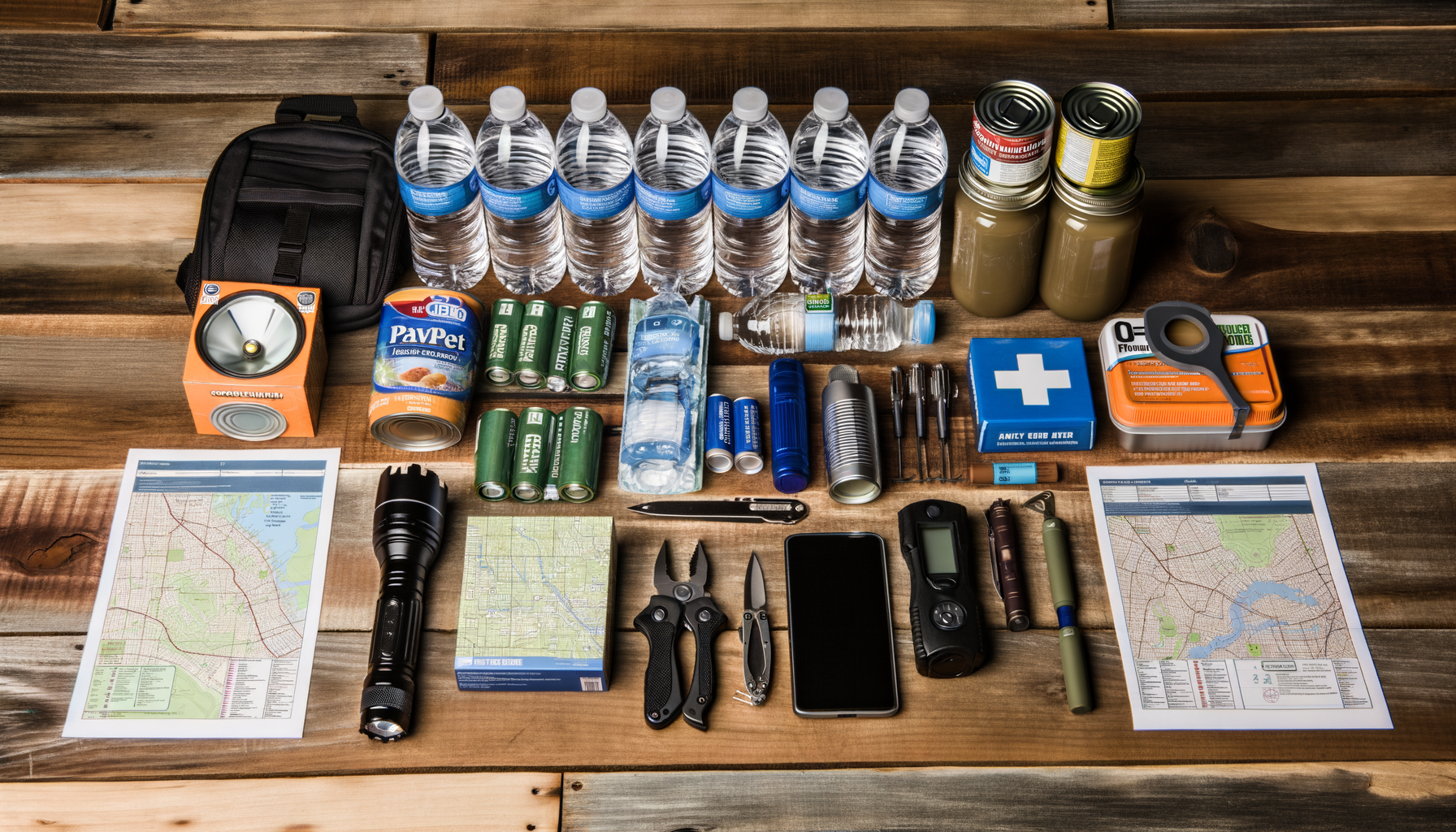
Essential Emergency Supplies
- Flashlights: Ensure reliable lighting during power outages.
- Batteries: Stock extra batteries for your flashlights and other devices.
- Battery-Powered or Crank Radio: Stay informed about weather updates and emergency alerts.
- Bottled Water: Prepare about one gallon of water per person per day for at least three days.
- Whistle: Useful for signaling for help if needed.
- First Aid Kit: Include supplies for treating minor injuries and managing health needs.
- Plastic Sheeting or Tarps: Protect your home from water intrusion and seal off leaks.
- Duct Tape: Essential for securing plastic sheeting and making quick repairs.
- Toilet Paper: Ensure an adequate supply of sanitation products.
- Rubber Boots: Wear these to protect your feet from floodwaters and debris.
Essential Emergency Supplies
- Basic Hand Tools: Include a hammer, screwdriver, and wrench for any necessary repairs.
- Manual Can Opener: Necessary for accessing canned food.
- Medications: Keep an ample supply of both prescription and over-the-counter medications.
- Backup Generator: Invest in a generator to power essential appliances, along with fuel for operation.
- Extra Gasoline: Store extra fuel safely for your vehicle and generator.
- Sandbags: Use these to divert floodwaters away from your home.
- Fire Extinguisher: Be prepared for potential fires during emergencies.
- Maps of Your Local Area: Have paper maps on hand in case of digital service outages.
- Identification Copies: Keep copies of important documents in a waterproof container.
- Bug Spray: Protect against mosquito bites, especially after standing water accumulates.
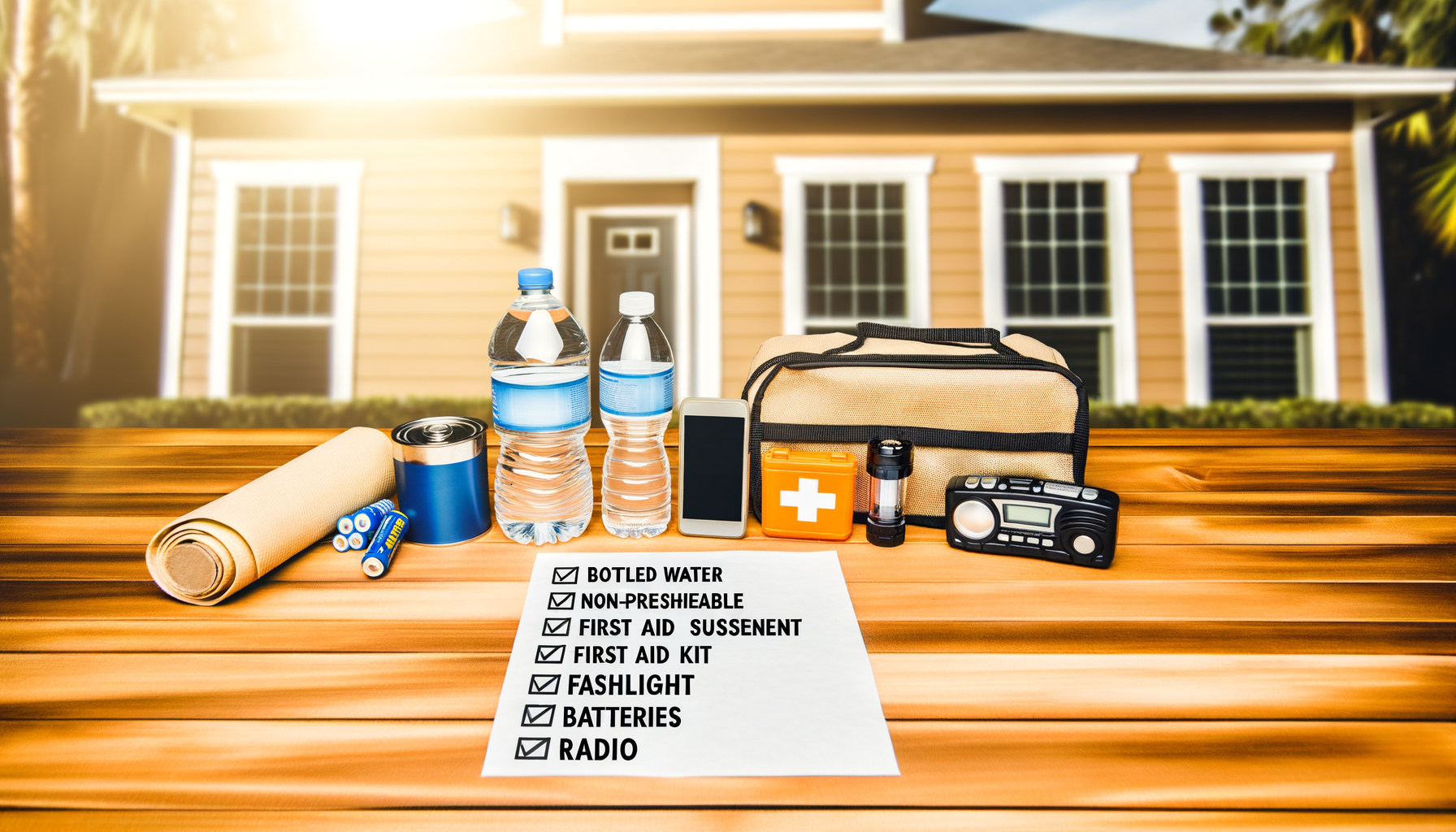
Food Supplies for Hurricane Preparedness
In addition to emergency supplies, it’s crucial to store enough food to sustain your family for several days, especially since electricity may be unavailable. Focus on non-perishable items, such as:
- Granola and Protein Bars: Nutrient-dense options for quick energy.
- Peanut Butter and Bread: A versatile and filling food choice.
- Dry Cereals: Easy-to-prepare and nutritious.
- Canned Fruits and Vegetables: Long-lasting and healthy options.
- Canned or Pouched Juices: Hydrating and convenient.
Consider healthy foods that provide high-quality energy to support your family during the storm. For families with infants, ensure you have shelf-stable baby food readily available. Additionally, take special considerations for elderly or differently-abled household members to meet their specific dietary and health needs.

Before the Storm: Prepare Evacuation Route and Ensure Your Car Is Ready
Understanding your evacuation options is crucial for safety during a hurricane. Florida is divided into six major evacuation zones—A through F—with Zone A being the most vulnerable and likely to be evacuated first, while Zone F is the least susceptible.
Know Your Evacuation Zone
- Familiarize yourself with your specific hurricane zone and the planned evacuation routes. Don’t wait until a storm is imminent to gather this information.
- Stay updated by monitoring local news and keeping a storm radio handy to learn if your zone is ordered to evacuate.
Vehicle Preparedness
- Ensure your car is gassed up and ready to go. Regular maintenance, oil changes, and inspections during the off-season will help ensure your vehicle is reliable.
- If possible, move any extra vehicles into your garage to protect them from storm damage.

Before the Storm: Prepare Your Home
Before the Storm: Review Your Insurance Policy
Reviewing your insurance policy is crucial for understanding your coverage and ensuring you’re prepared for potential damage.
Key Considerations:
- Coverage Details: Identify what damage is covered and what is not.
- Deductibles: Be aware of your hurricane-specific deductibles, which are often higher than standard ones. These may range from one to five percent of your home’s insured value and typically activate upon a storm being named or when a hurricane warning is issued.
- Policy Limits: Understand the maximum payout limits for your losses to ensure they align with your home’s value, especially if your property has appreciated.
- Flood Insurance: Verify whether your policy covers flooding and flood damage, as most homeowner’s policies do not. A separate flood insurance policy is essential and usually comes with a 30-day waiting period.
- Renters Insurance: If you are a renter, check if your policy includes hurricane damage coverage, as flood damage is generally excluded. You may need to purchase additional flood insurance.
- Car Insurance: Ensure your vehicle insurance covers flood damage as well.
Keep all insurance documents and contact information in a secure, dry place for quick access during emergencies.
Whether you plan to stay or evacuate, taking steps to prepare your home is essential to minimize potential damage from hurricane conditions.
Key Preparatory Steps
- Clear Your Yard: Remove items that high winds can turn into projectiles, such as bicycles, outdoor furniture, toys, and grills.
- Pool Preparation: Turn off power to pool equipment, add extra chlorine, and remove toys and floats. Do not cover the pool.
- Window Protection: Use storm shutters or plywood to cover windows, ensuring they can withstand high winds. Follow proper techniques to secure them.
- Electrical Safety: Know how to shut off your home’s power to prevent hazards from flooding or downed wires, especially in hard-to-reach locations.
- Smoke and Carbon Monoxide Detectors: Ensure that batteries are functional in these devices to keep your home safe during emergencies.
- Roof Maintenance: Check for any missing shingles or braces and replace them to minimize water damage.
- Protect Important Items: Store documents, electronics, and valuables in waterproof containers or place them high up in your home to guard against flooding.
Taking these precautions can significantly reduce the extent of damage you may face after the storm.
Preparation Tips for Those with Chronic Illnesses or Disabilities
Preparing for a hurricane can be especially challenging for individuals with chronic illnesses or disabilities. If you or a loved one fall into this category, it’s vital to take specific steps to ensure safety and well-being.

Gather Medical Supplies
Assemble a comprehensive kit that includes all necessary medical supplies. This should consist of extra prescription medications, medical devices, and any specialized equipment, such as oxygen tanks or mobility aids. Ensure these supplies are easily accessible.
Organize Medical Records
Keep important medical records and documents readily available. This includes information about medical conditions, allergies, and a list of current medications. These documents may be essential if you need to seek emergency medical treatment.
Consult Your Healthcare Provider
Speak with your doctor about any ongoing treatments, such as chemotherapy or dialysis, and discuss how to maintain these during a hurricane. Having a plan in place will help ensure continuity of care.
Arrange Transportation
Coordinate transportation in advance, whether through county services or your own vehicle, ensuring it accommodates any special physical requirements of the individual in need.
Pre-register for Special Needs Shelters
If evacuation becomes necessary, consider pre-registering for a spot at a special needs shelter. You can obtain information about available shelters by contacting your local health department or emergency management office.
Consider Individual Needs
Tailor your preparations to the specific requirements of your family member. Whether you choose to shelter in place or evacuate, ensure you have everything necessary to support their health and comfort throughout the hurricane.
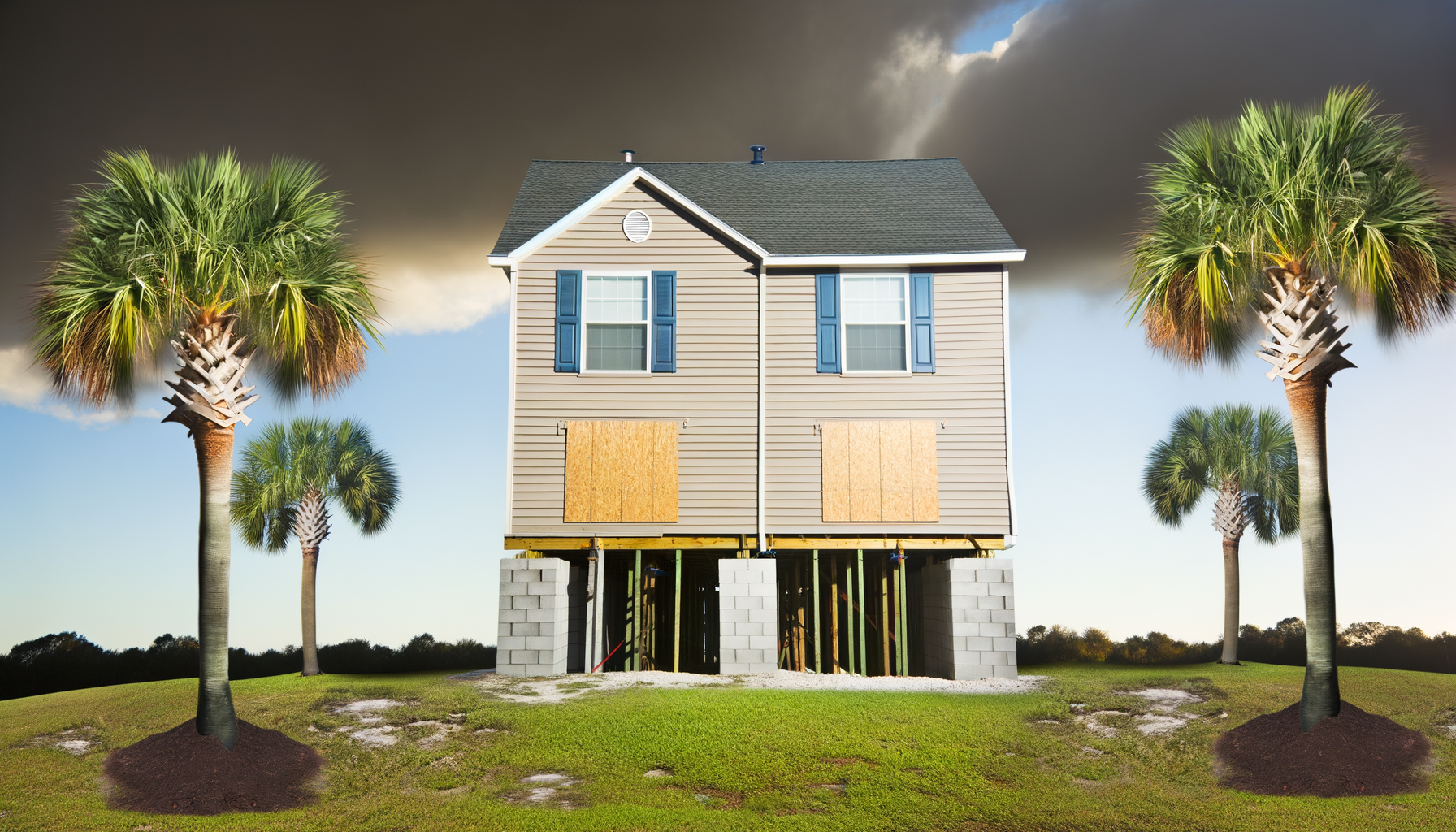
During the Storm
When a hurricane strikes, it’s crucial to prioritize safety by sheltering in place. First, locate a safe area within your home, ideally on the first floor, away from windows, skylights, and doors. Rooms like bathrooms, closets, and pantries situated in the center of the house offer good protection. If your home has a basement and flooding isn’t a concern, you can also take cover there, but ensure you are positioned away from any windows.
In anticipation of violent winds, it’s advisable to shield yourself with a mattress, sleeping bag, or heavy blanket to protect against flying debris. Throughout the storm, it’s vital to stay informed about its progress. Keep a battery-operated radio or TV on to monitor updates regarding the storm’s location and intensity. If the power goes out, having a portable radio will help you stay connected to emergency broadcasts.
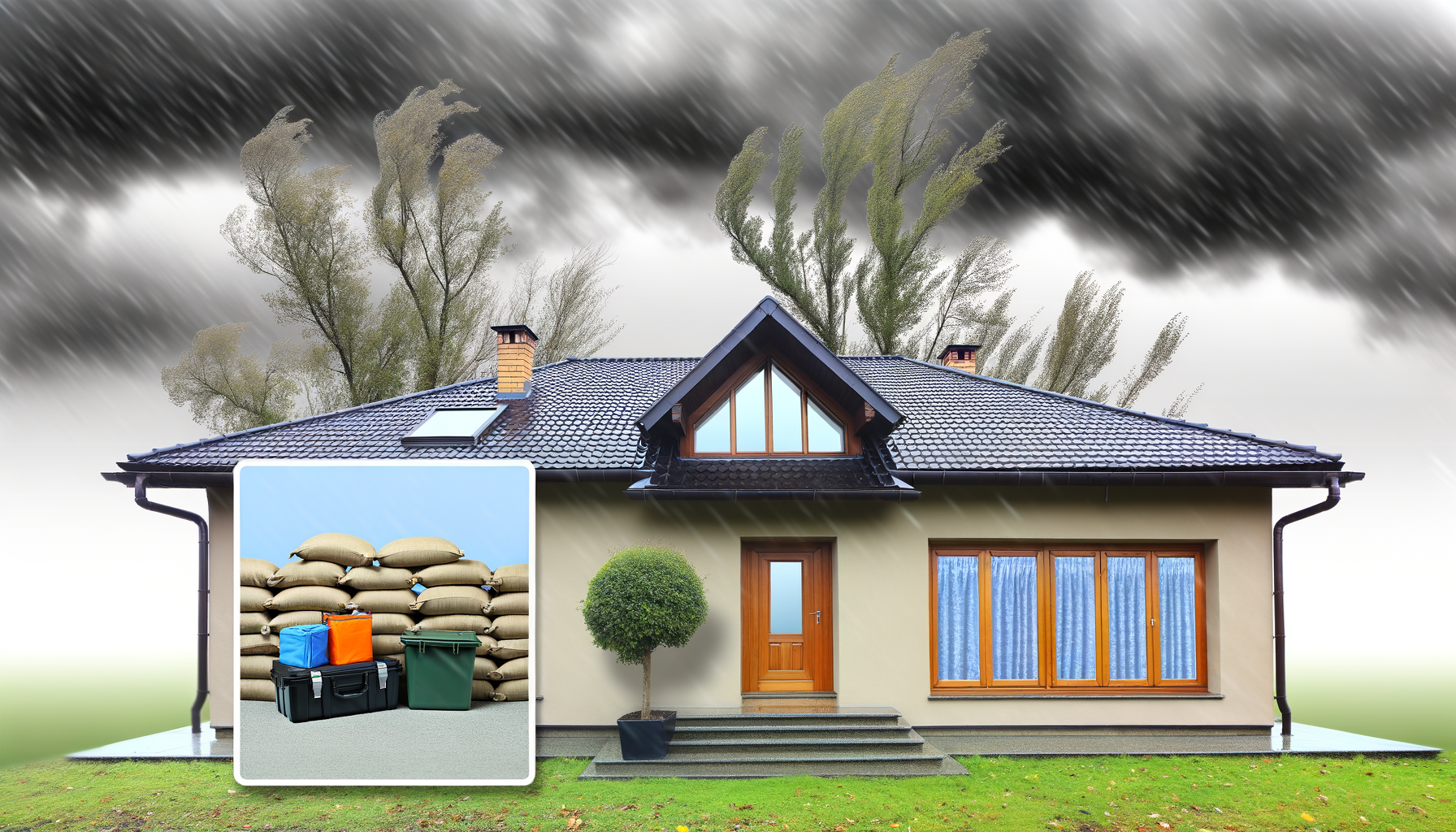
After the Storm
Once the hurricane has passed, it is crucial to remain cautious before venturing outside. Stay in a safe location until it is deemed safe to explore your surroundings. Even then, be vigilant for potential hazards that may be present.
Flooding is a common aftermath of hurricanes, so it’s essential to assess whether your roads and streets are accessible. Look out for downed power lines and other utilities that could pose serious risks of electrocution or injury. Additionally, be aware that floodwaters can attract wildlife, including alligators and other dangerous animals, from local waterways. Flooding may also contaminate your home’s water supply, so it’s wise to avoid using tap water for drinking or bathing until you are certain it is safe.
In the aftermath of a storm, avoid lighting candles as damaged gas lines may lead to the risk of explosions. Instead, rely on flashlights for illumination. It is critical to steer clear of any hazards and to remain indoors, calling 911 for emergency assistance if necessary.
Continue to utilize your emergency supplies, particularly bottled water, as storms and flooding often compromise the safety of tap water. Contact local friends and family to check on their well-being and ensure they are safe.
Once it is safe to leave your shelter or return home, you can begin assessing the damage to your property, belongings, and overall environment. Take your time and be thorough in your evaluation, ensuring you document everything for any necessary recovery efforts.
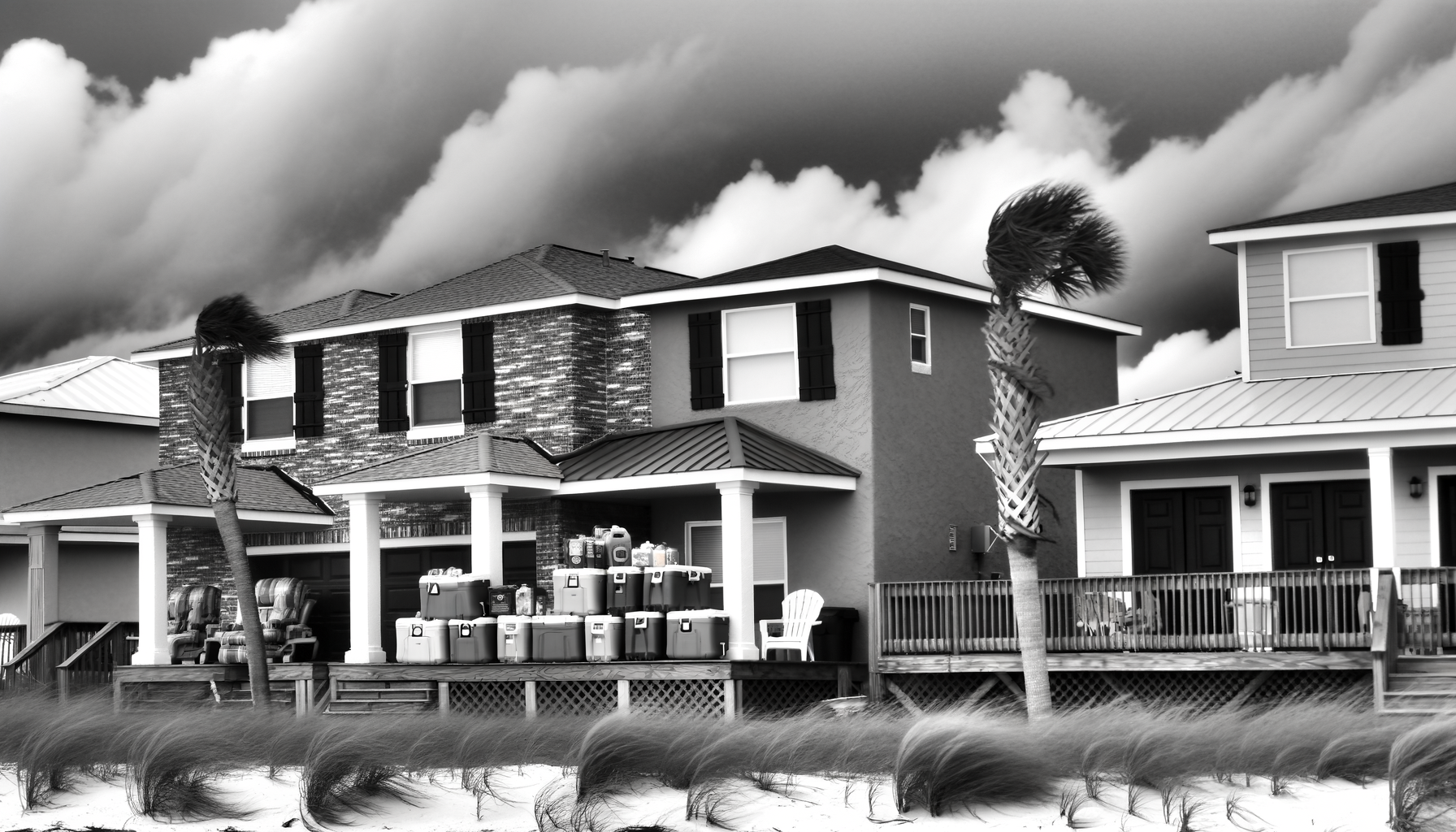
Assessing Damage After a Hurricane
After a hurricane, it’s essential to thoroughly assess the damage to your property. Begin by walking around your home and noting anything that has been damaged or destroyed. Take clear pictures and videos to serve as evidence for your homeowner’s insurance claim, and maintain a hurricane damage log to keep everything organized.
Key Areas to Inspect
Pay special attention to key areas, including:
- Roof Condition: Check for missing shingles or leaks.
- Water Damage and Flooding: Look for signs of dampness or mold.
- Siding: Note any missing or damaged siding.
- Appliances: Assess the condition of major appliances.
- Flooring: Examine rugs and carpets for water damage.
- Drywall and Sheetrock: Look for warping or discoloration.
- Outdoor Structures: Check sheds and fences for damage.
- Foundation: Be aware of any changes to the structure of your home.
- Vehicles: Inspect any cars or vehicles for storm-related damage.
- Windows and Doors: Ensure they are intact and functional.
When recording damage, mark the value of each item and include what you paid for them. Supplement your documentation with receipts, bills, and invoices to ensure you receive the full amount of your insurance coverage.
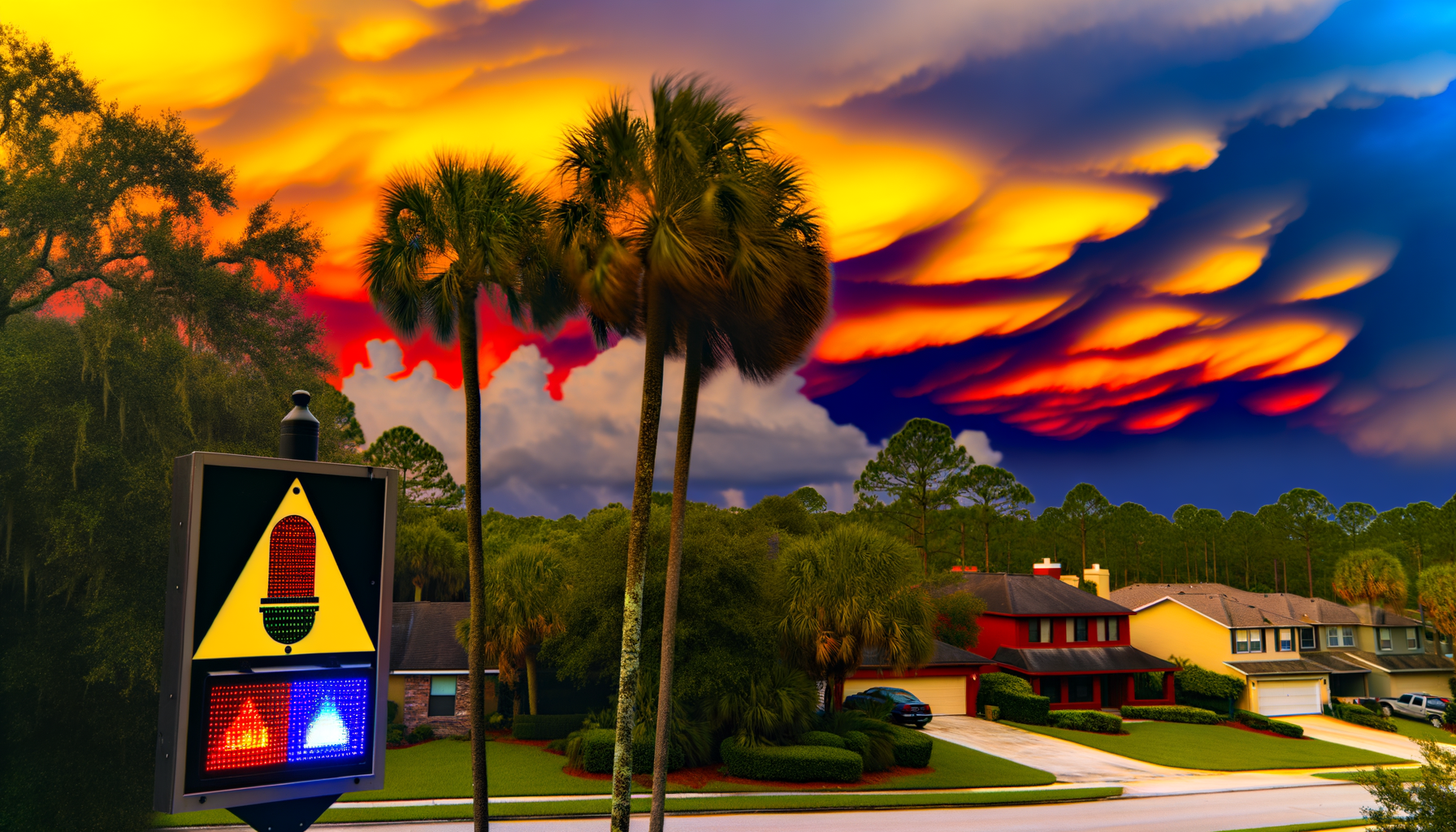
To Do Tasks List
Beginning the Clean-Up Process
Once you have assessed the damage, it’s time to begin the cleanup process. If you applied shutters or plywood to your windows and doors for protection, carefully remove them to allow excess moisture to escape and minimize further damage to your home.
Safety First: Flooded Areas
If your home has flooded, wear heavy rubber boots to protect your feet and legs while navigating. Begin by removing severely damaged items. This reduces health risks and makes the cleaning process more manageable.
Disinfecting and Sanitizing Your Home
Disinfect your home using a solution of one cup of bleach per gallon of water. This is crucial as storm water often contains hazardous materials like sewage. Thorough cleaning will protect your family from potential health hazards.
Contacting Your Homeowner’s Insurance
Once you’ve evaluated the damage, contact your homeowner’s insurance immediately. Filing a claim should be done promptly, as insurance companies are often inundated with claims after major storms. Patience and persistence are key during this process.
Additional Living Expenses (ALE)
If your home is severely damaged, you may qualify for Additional Living Expenses (ALE). These funds can help cover temporary housing, food, and travel expenses if your home becomes uninhabitable, providing financial relief in the aftermath of the storm.
Initiating Your Claim
When contacting your insurance company, a representative will guide you through initiating your claim. Ask if you should start gathering estimates for repairs, as this can expedite the claims process. The faster you get organized, the quicker the process can move forward.
Role of the Insurance Adjuster
An insurance adjuster will be assigned to evaluate your home’s damage. They will assess the evidence you’ve gathered and determine what your policy covers and how much you will receive for repairs. This assessment is key to understanding your compensation.
Disputing Adjuster Findings
If you disagree with the adjuster’s evaluation, you can hire a public adjuster. A public adjuster is an independent professional who will offer a second opinion and help ensure you receive the proper compensation for your losses.
Seeking Legal Assistance

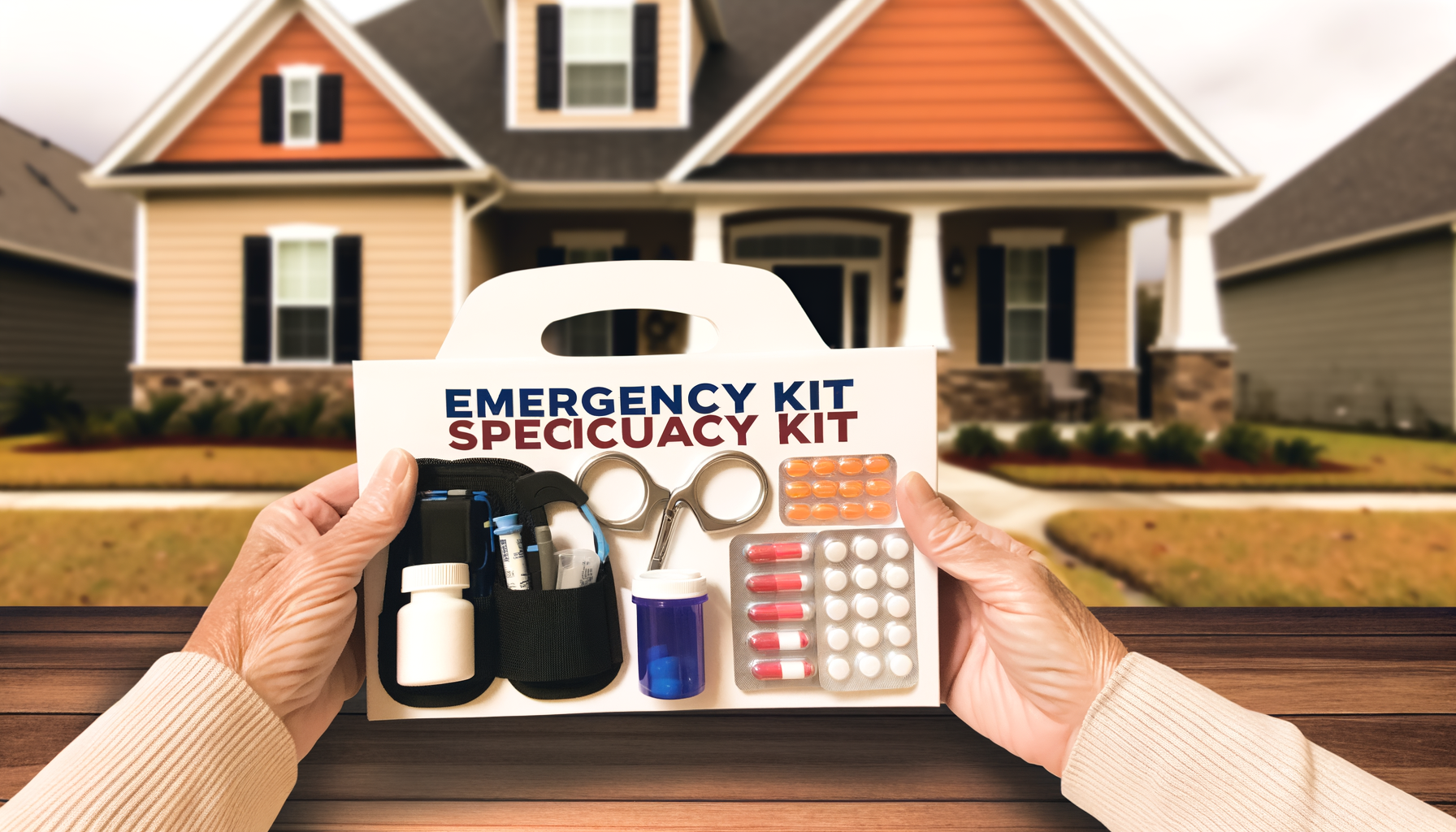
Schedule Your Professional Roof Inspection Today!
Preparing for a hurricane requires diligence and proactive measures, especially for those with chronic illnesses or disabilities. By gathering necessary medical supplies, securing your home, and understanding your insurance options, you can better navigate the challenges that arise during and after a storm. Remember to stay informed through reliable channels and prioritize safety in the aftermath by assessing damages and documenting everything for your insurance claim. By taking these steps, you ensure not only your safety but also that of your loved ones. For expert assistance with roofing or damage repairs, consider reaching out to local professionals to help you through the recovery process.
How long do you want to deal with roofing problems?
Contact us for a free consultation and start your journey to a new, worry-free roof with Steel Rudder Roofing!
Get in Touch
(904) 699-4573
kenbaker@steelrudder.com
Hours of Operation
Monday – Friday: 8am – 6pm
Saturday – Sunday: 9am – 1pm
Our Headquarters
10151 Deerwood Park Blvd.
Building 200, Suite 250
Jacksonville, FL 32256
